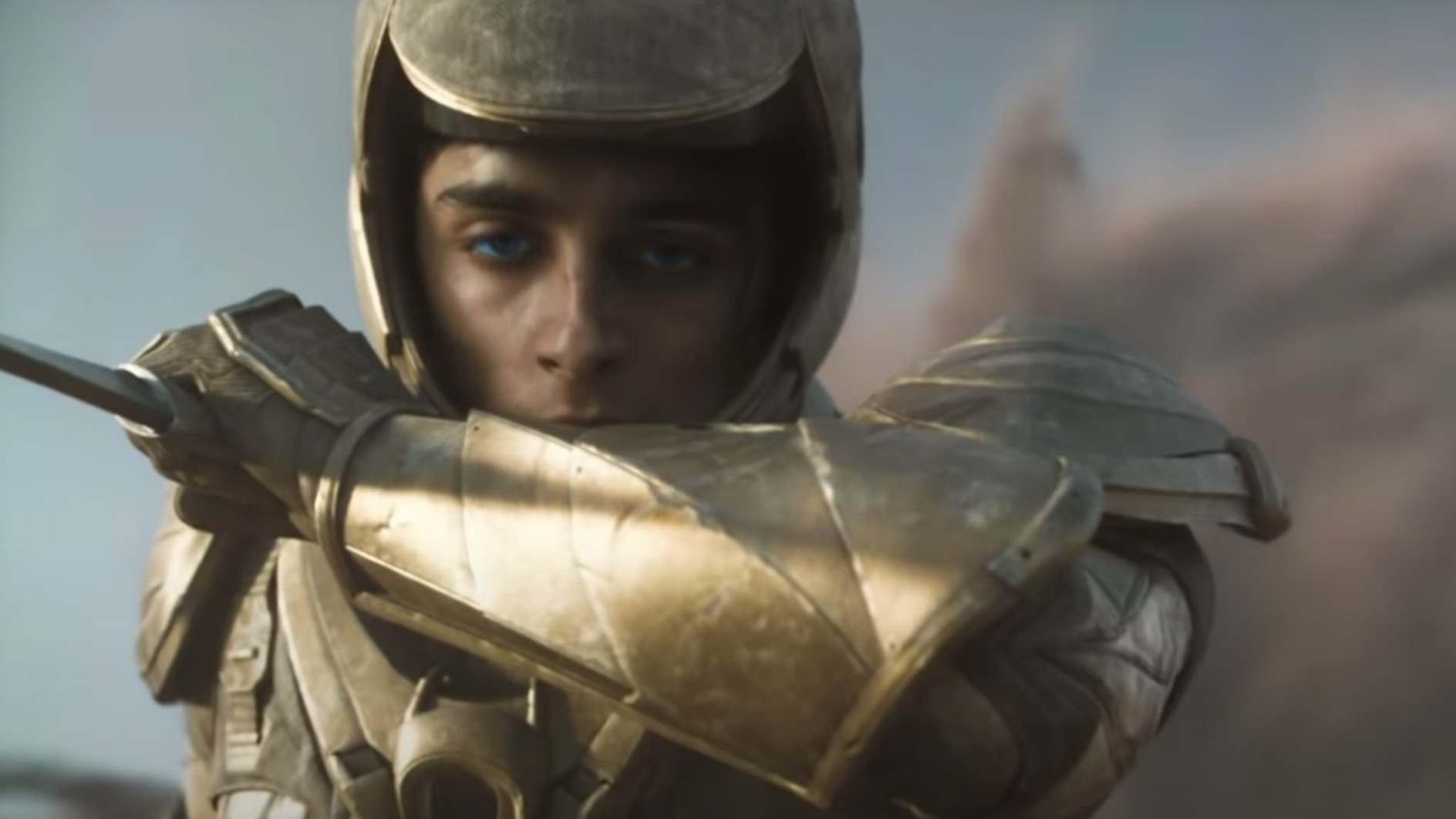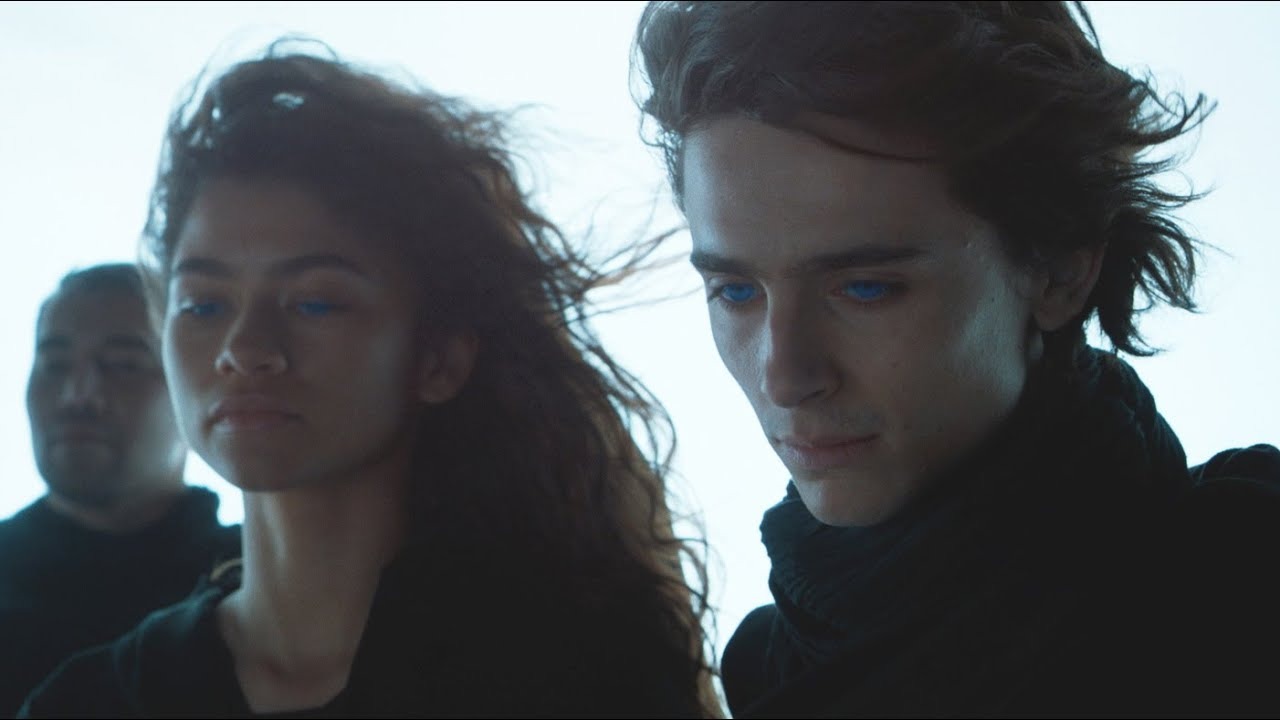Dune’s most frustrating plot device is also its smartest
Dune's most frustrating plot of ground twist is also its smartest

Monitory: Spoilers follow for Dune
As you'll likely have heard by now, Denis Villeneuve's Sand dune comes to a rather abrupt end.
It was always known that the director would shoot his thunderous version of Frank Herbert's sci-fi original in two parts. But sighted this lack of finality – and arguably, drama – playing period out in the duology's introductory instalment might chip as dissatisfactory, especially to those who had looked forward to Dune with needs doomed levels of expectation.
By the same token, though, there is no strange way I would quite give birth seen Villeneuve tell this story. To those unfamiliar with the source incarnate, which the director so meticulously adheres to throughout the plastic film's 150-instant runtime, Dune is an intimidatingly dense chronicle of inheritable upheaval, political tension and theological divination. In operable price, that means it's a 20-hour audiobook, or a novel you probably wouldn't get around to finishing on a week-long-snouted vacation.
- Check out our spoiler-free review of Dune
- Denis Villeneuve on delivery Outspoken Herbert's sci-fi epic to life
- This is how to watch Dune online
As such, Villeneuve single agreed to dramatize his version of Sand dune if He was permitted to do so across two films – with the first laying the groundwork for a more comprehensible, exciting second. Aside necessity, past, Dune: Part Unity occasionally suffers under the weight of its instructive responsibility.
But Villeneuve knows this. He loves this physical like a Bible, and does exceptionally well to delve into Herbert's complex lore and religious ramblings in a way that ne'er seems roadless. Soundtrack and sandworms aside, Dune is far from standard blockbuster fare, and though its lack of dramatic tension means it isn't the standalone sci-fi spectacular many expected it to be, the director uses a particular proposition plot device to speck that Sand dune: Part 2 will deliver on it prognosticate – Saul of Tarsu's dreams.

Villeneuve non just employs his protagonist's (mayhap overly shop) visions as a narrative tool throughout the plastic film – cogent evidence of Paul the Apostle's role A the deliverer "Muad'Dib" – simply also as a means of teasing Dune's subsequence. He dangles the most exciting parts of Herbert's fresh in front of his audience patc acknowledging that he's not yet able to showcase these sequences this early in the story.
In much moments, Villeneuve is basically saying, "Look, guys, this is the movie you thought you were about to see, only come bet on in cardinal years and you'll cotton on."
And you know what? That's in reality okay. Sure, it was frustrating to discover that certain dramatic set-pieces excited in the trailers (the giant desert battle, for instance) remain teases (scan: visions) in the film itself, just at least they'rhenium evidence that Villeneuve's hyper-faithful adaptation bequeath crank up the action in an American Samoa-thus far-uncommissioned review.
St. Paul's dreams are my dreams for what Villeneuve's Dune would turn out to be when atomic number 2 attached himself to the project back in 2016. And since they prophesize the events of its sequel, almost as if the director has already shot it, I am more than happy to abdomen the disconnected half time whistle and look gardant to Dune: Division 2 with anticipation adequate the first.


It's disobedient to know whether the issue of these cinematic breadcrumbs is the same to those unfamiliar with the rest of the original's tale. I watched the movie with friends who were (and still are) entirely insensible of how Sand dune plays call at its entirety, so it's no surprise that some felt cheated aside Villeneuve's unapologetic halting of legal proceeding.
Perhaps if Dune was more obviously marketed as Part 1 of a two-part taradiddle, those cinemagoers who hadn't immersed themselves in its press tour preceding to viewing power not feel so chunky-changed by its lack of decisiveness.
But Jason Momoa's Isadora Duncan Idaho offers a telling quip for the director's hopes of a subsequence early on in the picture show. His line "dreams relieve oneself good stories" is well-meant to ease Paul's creative thinker, though it also rather sums up Villeneuve's go up to hooking his audience on an even better film helium can't yet make.
Information technology's Zendaya's Chani, however, who gets the most unmistakably direct (and very antepenultimate) piece of dialogue in Dune's two-and-a-30 minutes runtime. "This is only the root," she tells us – which is absolutely trustworthy of this sprawling story, and hopefully Villeneuve's stewardship of it.
Dune is now streaming on HBO Scoop in the US
- Check out the best movies on HBO Max
Dune's most frustrating plot device is also its smartest
Source: https://www.techradar.com/news/dunes-most-frustrating-plot-device-is-also-its-smartest

Posting Komentar untuk "Dune’s most frustrating plot device is also its smartest"